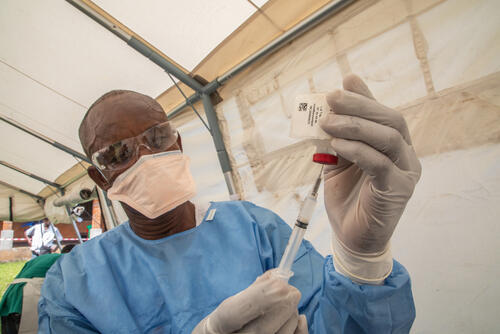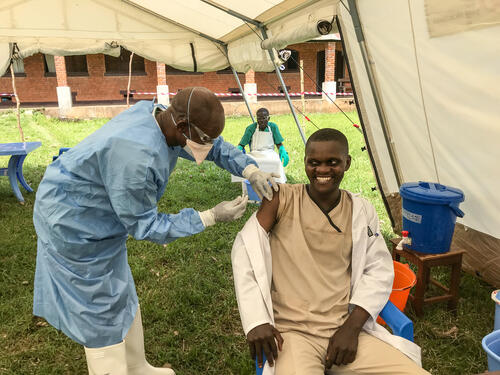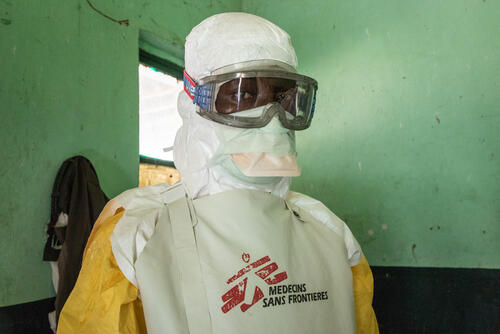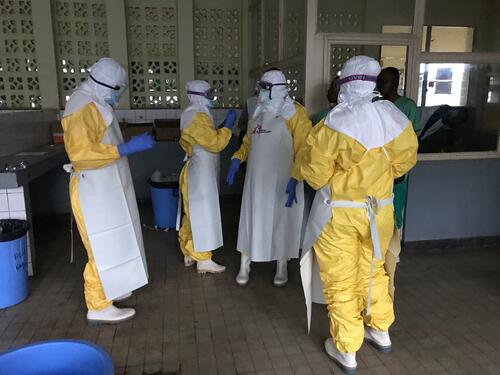On 24 July 2018, the Ministry of Health in the Democratic Republic of Congo (DRC) officially declared the country’s Ebola epidemic over. The outbreak was declared on 8 May 2018, in northeast DRC.
“Médecins Sans Frontières (MSF) welcomes this announcement and the end of the Ebola epidemic,” says MSF medical director Dr Micaela Serafini.
“Since the beginning of the outbreak, MSF set up its medical response along with national health authorities, providing care, isolation of patients and health promotion activities, in addition to participating in epidemiological surveillance and safe burials in Mbandaka, Bikoro, Itipo and Iboko.
Along with the Ministry of Health and the World Health Organization (WHO), MSF also participated in an investigational vaccination to hold off the spread of the virus. The data is still being analysed, but we are encouraged that this vaccination – as well as the rapid international response and concerted outreach efforts into remote communities – contributed to stemming the spread of this deadly virus. Vaccination provides an additional tool for fighting such epidemics.
While Ebola remains a threat in the Democratic Republic of the Congo, we are bolstered by some advances made in the recent response. We also hope that the resources dedicated to this Ebola intervention in Equateur province will have a long-term positive impact in the future by strengthening the capacity of DRC’s health system.
MSF continues to respond to other non-Ebola outbreaks elsewhere in the DRC (such as measles and cholera), and to accompany research efforts into potential treatments for Ebola, in order to be able to give patients the best possible chance of beating the virus in case of a new epidemic.”
Between May and mid-July, MSF teams ran a three-month long emergency intervention in Equateur Province to respond to the Ebola outbreak. Throughout the course of the outbreak, Congolese Ministry of Health teams supported by MSF in Bikoro, Itipo, Mbandaka and Iboko provided care to 38 confirmed patients, 24 of whom survived and returned to their homes. Sadly 17 died. More than 120 other patients who showed symptoms consistent with Ebola were isolated and tested before being allowed to return home after testing negative for the virus.
A total of 3,199 people were vaccinated against Ebola with the investigational Ebola vaccine rVSVDG-ZEBOV-GP under WHO’s Expanded Access Framework by teams from MSF, WHO and the Congolese Ministry of Health. MSF teams alone vaccinated some 1,673 people in the Bikoro and Itipo areas, including the contacts of confirmed Ebola patients and their contacts, and frontline workers (health workers, burial workers, traditional healers and motorbike taxi drivers) considered to be most at risk of contracting the virus.






